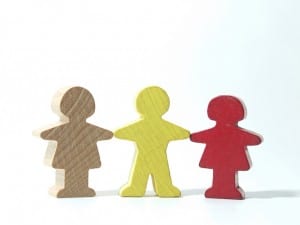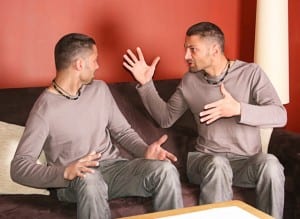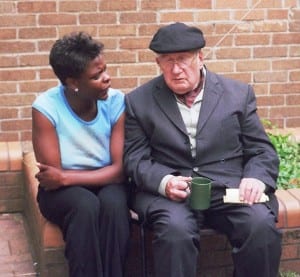 The way we respond to stress and anxiety can give us a lot of information about how we function in relation to other people. In these situations, where you seem to be out of control and have no solution in sight, do you feel helpless or hopeless? That might sound like a very simple distinction, but it actually says a lot about the coping mechanisms we have available when we feel overwhelmed.
The way we respond to stress and anxiety can give us a lot of information about how we function in relation to other people. In these situations, where you seem to be out of control and have no solution in sight, do you feel helpless or hopeless? That might sound like a very simple distinction, but it actually says a lot about the coping mechanisms we have available when we feel overwhelmed.
The helpless person tends to see himself/herself struggling against others, against outside forces against who we see ourselves as unable to prevail. There is a blame orientation to this thinking in which someone else is responsible for what I am experiencing. If only I were strong enough, powerful enough, smart enough, etc, to be victorious, I would win. I would succeed. I would no longer be helpless.
Life for the person who experiences frustration as helpless is always a battle against others. There is a basic assumption among people who view life this way that life is a competition. Success and relationships are viewed in terms of how we are doing compared to others.
People who experience frustration as hopelessness tend to see themselves as the reason for the failure that led to the anxiety or frustration. They believe that if somehow they had been better, smarter, more capable, things would have turned out differently. People with an orientation towards hopelessness blame themselves rather than others when things do not go well.
 The helpless person can be said to operate out of a mindset of outward blame, while the hopeless person is seen as using inward blame. A helpless person can be depicted as flailing and yelling in all directions, aggressively attacking whoever or whatever out there is causing the misery they are experiencing. While not alone, the helpless person can often be feeling very lonely.
The helpless person can be said to operate out of a mindset of outward blame, while the hopeless person is seen as using inward blame. A helpless person can be depicted as flailing and yelling in all directions, aggressively attacking whoever or whatever out there is causing the misery they are experiencing. While not alone, the helpless person can often be feeling very lonely.
The hopeless person can be pictured as standing, sitting or lying, drawn in on him/herself, totally isolated because no one else is responsible for the frustration and anxiety of the moment.
In the words of a pop-culture expression of psychology in vogue a number of years ago, the helpless person would say. “I’m OK–You’re NOT OK,” while the hopeless person would reply,”I’m NOT OK–You’re OK.”
These examples of helpless and hopelessness are oversimplifications, but they do give us basic tools to begin to look at how we relate to others and to begin to understand why some of our relationships go in the directions they do. Are you a helpless or a hopeless person in terms of responding to extreme anxiety and frustration. Is “it” someone else’s fault or yours? You might want to have a conversation with a few people close to you to be sure you understand your orientation. It may not be easy to determine.
 I believe every insight we gain in how we interact with others can be helpful in our personal growth. Helplessness and hopelessness are neither bad or good. They just tell us a little bit about the amazing person we are. Happy discovery.
I believe every insight we gain in how we interact with others can be helpful in our personal growth. Helplessness and hopelessness are neither bad or good. They just tell us a little bit about the amazing person we are. Happy discovery.
We have a podcast containing the As We Move Forward articles read by Jae Bloom.

An excellent ouarcteh, dehelen ; one which I echo. I’d also like to add that as an overcomer (my word) of violence and abuse, I would say that if you take your life, you truly become a victim. They win. Do you really want that? Fight back. Be stronger than the hatred, betrayal, whatever that has driven you to contemplate suicide. Don’t let them win. Use your pain to educate and elevate others.Also, know that you are NOT ALONE. People care about you. I care about you. Please don’t give up. Instead, reach out for a lifeline.